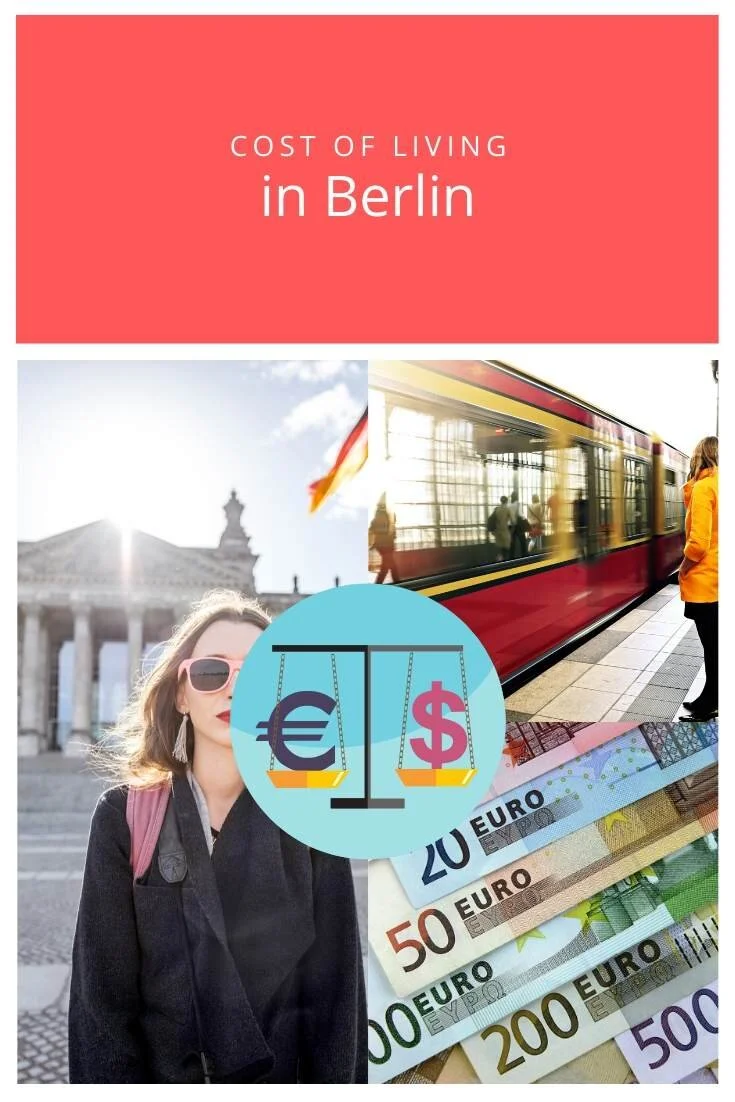Is Berlin Expensive? The Cost of Living in Berlin in 2020
With seemingly no end to the exorbitant cost of living in many European capitals, many young people are searching for a cheaper, more fun alternative. Cities where you can live in a great area, eat out regularly and still have money left over in the bank for travel, holidays or activities. I’m sure we can all agree that working just to keep our head above water is not much fun!
As a result, we frequently get asked: is Berlin expensive? As with many things, the cost of living in Berlin is partly dependent on your lifestyle. Are you a techno fiend or an extravagant foodie? An avid cyclist or U-Bahn regular? There are countless factors that will influence how cheap you find life in Berlin, but having lived in Oslo, London and Amsterdam, I can guarantee you’ll find Berlin to be a financial dream in comparison!
This is why many people are opting to base themselves in the German capital, with its world-class nightlife, endless supply of affordable restaurants and bars, and cheap city accommodation. With young people relocating to Berlin from far and wide, you are perhaps tempted to jump on the bandwagon.
But just how expensive is Berlin?
How expensive is housing in Berlin?
Traditionally, rent prices have been famously low in Berlin. While the fabled stories of €300 apartments are no longer the norm, there are still some cracking deals to be found.
While an apartment in Mitte will be significantly pricier than Moabit, it is estimated that you can snap up a small furnished 1-bedroom apartment for €950 in a decent part of town. If you fancy sharing a place, you can expect to pay around €500 for a bedroom in a 2-bedroom 85 m2 furnished flat. Most of Berlin’s apartments are very spacious and often come with high ceilings and charming hardwood floors.
Follow the link for tips on finding an apartment or room in Berlin.
How expensive is transport in Berlin?
As an all-year-round cyclist, my personal transport costs are limited to the odd single ticket here and there. However, if you’re more of a fair-weather bike rider, then the U-Bahn/S-Bahn/tram/bus network is a very affordable alternative.
A 24/7, unlimited monthly transport pass is €81 and you can even take a friend for free on weekdays after 8 p.m. and weekends. You can also opt for a reduced monthly pass (€59) if you don’t need to travel before 10 a.m. When compared with London, where a month pass for zones 1 and 2 is around €160, you really are getting tremendous bang for your buck in Berlin.
There are also a number of car sharing options, which allow you to whizz around town for the fraction of the price of a cab. The most popular car-sharing app is SHARE NOW.
How expensive is wining and dining in Berlin?
With a Späti (convenience store) at every turn, it is very easy to find extremely cheap booze in Berlin. You can pick up a bottle of wine for less than €4 and a bottle of beer for as little as 60 cents. In a bar, you can expect a 500 ml German beer to be around €3.30 with cocktails starting from around €8.
The city is littered with fantastic food markets, where you can purchase all your veg for the week for approximately €15. A standard restaurant will likely set you back around €12 for a main course and drink. Berlin has a large Turkish community, with delicious Turkish treats on almost every road in the city — you can enjoy some of Europe’s finest kebabs for just €3.
Berlin’s restaurant prices are generally unheard of in most European capitals and make the city’s food scene incredibly accessible for a much wider demographic.
So, is Berlin expensive? We can summarise that while Berlin has recently experienced a rise in rent prices, the current level remains around half what you could expect to pay for an equivalent apartment in London, New York or Paris. The cheap price of transport, food and drink ensures that Berlin comfortably keeps its crown as one of Europe’s most inexpensive capital cities, and does not look like it will be dethroned any time soon.
So, what are you waiting for — trade in your life of expensive rent, rare restaurant treats and crippling transport costs for a cheaper, more fun and ultimately richer life in Berlin!
For guides, resources and tips for moving to Berlin, check out our homepage and free relocation resources.
